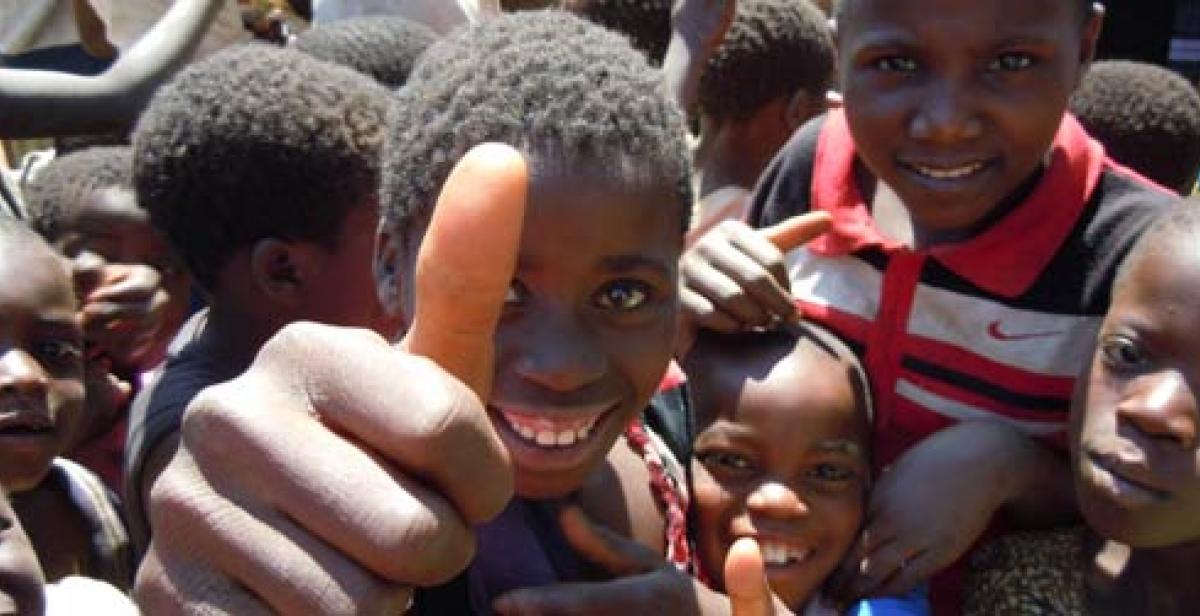The week began with lessons in culture and language, so we are now able to greet each other, introduce ourselves and ask for food at the market! We’ve also got a basic understanding of village life - which we were able to experience first-hand on Wednesday during our visit to the village of chief Kalolo (who owns 3000 villages in total).
We arrived at the village with the girls dressed in traditional chitenjes and the boys in smart trousers. Before we could go into the village we had to meet the chief and offered him the gift of a live chicken, which he accepted and allowed us to spend the day in his village. While in the village it was easy to see a distinct difference between the roles that men and women play - roles which we had to adopt during our visit. Both men and women get up at dawn to go to work farming maize, pumpkin leaves and tobacco, after this the men take a ‘well earned’ rest at a drinking place enjoying local brews, while the women were skillfully preparing food over a coal burner, getting water from the well (which we attempted to carry back on our heads, but unlike the professionals were unable to master it without hands) and doing any housework which needed to be done.
Everyone in the village appears to be very happy, although after talking to the women you can tell there is a feeling of inequality, which they just have to accept. Despite this when walking around the village you do feel a sense of community, where the bond is so strong and families are all part of one another. As we were walking we collected a large group of children following us, amazed by the white people. The children definitely brought the village to life and were so excited to play games, sing songs and went mad to have their pictures taken, striking different poses and scrambling to get to the front to see what the pictures were like. As we left we were waved goodbye by a huge group of beaming children and all felt very humbled by the village life.
As the week drew to a close we packed our bags to head north to Mzimba. We neared our new home and the density of the forest increased as the population density decreased. The land was rich with trees and greenery as far as you could see. As we arrived we were given a warm welcome by the Pastors from MANERELA+, who we will be working with over the coming weeks, to reduce the impact HIV has upon people, to reduce the stigma around HIV and to help enhance the livelihoods of those infected by HIV and AIDs.
ICS volunteer Charlotte Issac writes from Malawi. We don't have photos yet from Charlotte's team - this photo of children in Malawi was taken by the ICS Progressio volunteers who went to Malawi in July-Sept 2011.



